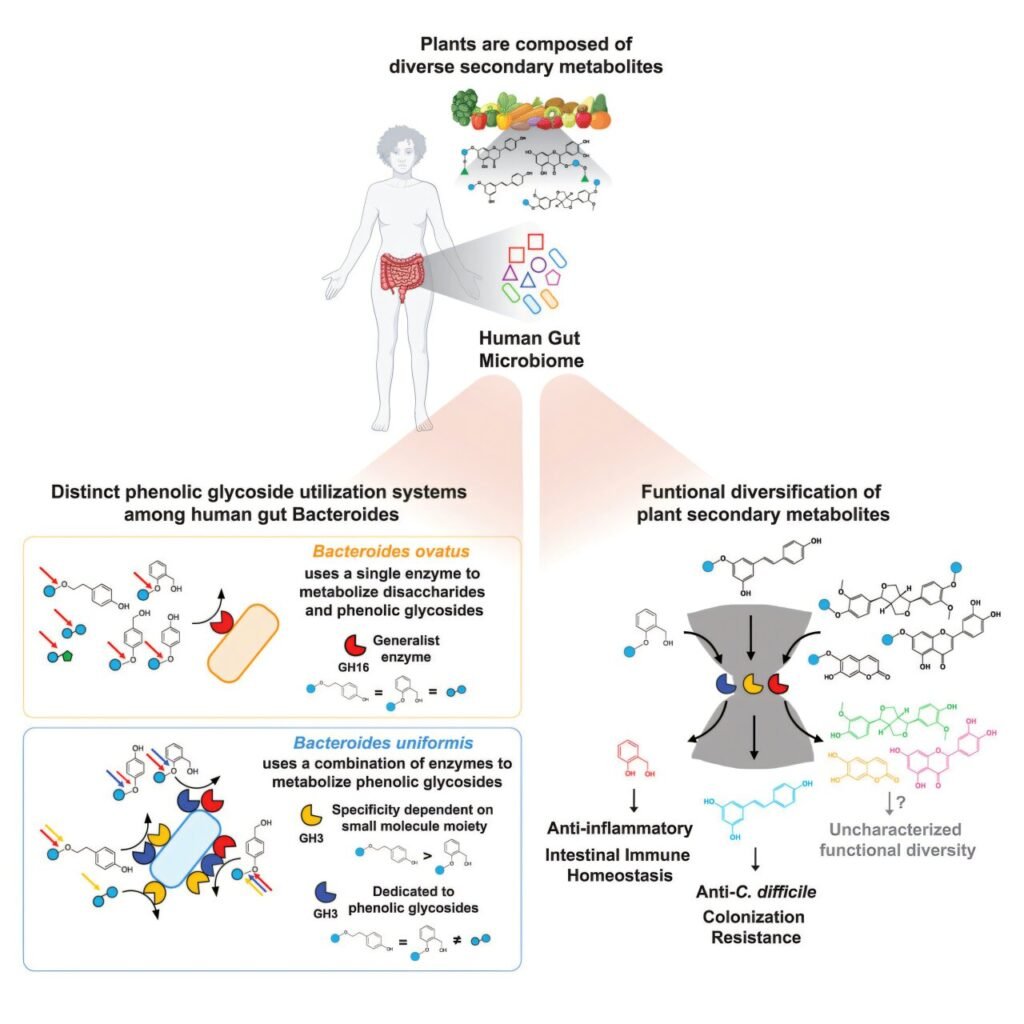Partnering Diet and Intestinal Microbes for Gut Health
Nutrition is an essential aspect of our daily lives, yet it remains somewhat of a mystery. We know that plant-based foods are beneficial for our health, but the role of our intestinal microbiome in breaking down these foods is still not fully understood. How do our gut bacteria influence our overall health?
A recent study published in the prestigious journal Cell sheds light on how we can optimize our diets by leveraging intestinal microbes to metabolize plant compounds known as phenolic glycosides. These compounds consist of sugar molecules paired with various small molecules that have potential health benefits for humans.
Dr. Seth Rakoff-Nahoum, from Boston Children’s Hospital, led the research team in investigating how different intestinal microbes utilize specialized enzymes to break down specific phenolic glycosides. By removing the sugar molecules for their own use, these microbes release small molecules that could have therapeutic effects on our health.
The study revealed that some of these small molecules play a crucial role in regulating intestinal inflammation and enhancing resistance to intestinal pathogens. The findings offer promising insights into developing new approaches for treating inflammatory bowel disease and severe intestinal infections caused by Clostridioides difficile.
To explore the nutritional role of the intestinal microbiome, researchers focused on Bacteroides, a predominant group of bacteria in the human gut. They conducted experiments feeding various phenolic glycosides to different strains of Bacteroides and Parabacteroides to identify which strains were most efficient at metabolizing these compounds.
The results demonstrated that certain small molecules released by Bacteroides enzymes could inhibit the colonization of C. difficile in the intestines. For example, resveratrol, a compound found in grapes and red wine, exhibited antibiotic properties when released from its parent molecule, polydatin. Similarly, salicin, derived from willow bark, showed anti-inflammatory effects when activated by Bacteroides in the intestine.
The researchers envision that their discoveries could pave the way for developing innovative therapeutic approaches. By combining plant phenolic glycosides with bacterial enzymes or directly with beneficial bacteria, new treatments could be designed to target specific health conditions.
Dr. Scott Snapper, Chief of the Division of Gastroenterology, Hepatology, and Nutrition at Boston Children’s Hospital, believes that this research has the potential to revolutionize therapeutic interventions for gastrointestinal diseases.
In conclusion, the study published in Cell opens up a new field of research with significant implications for human health. By harnessing the power of our intestinal microbiome to metabolize plant compounds, we may unlock the key to better gut health and overall well-being. Stay tuned for more developments in this exciting area of research.


